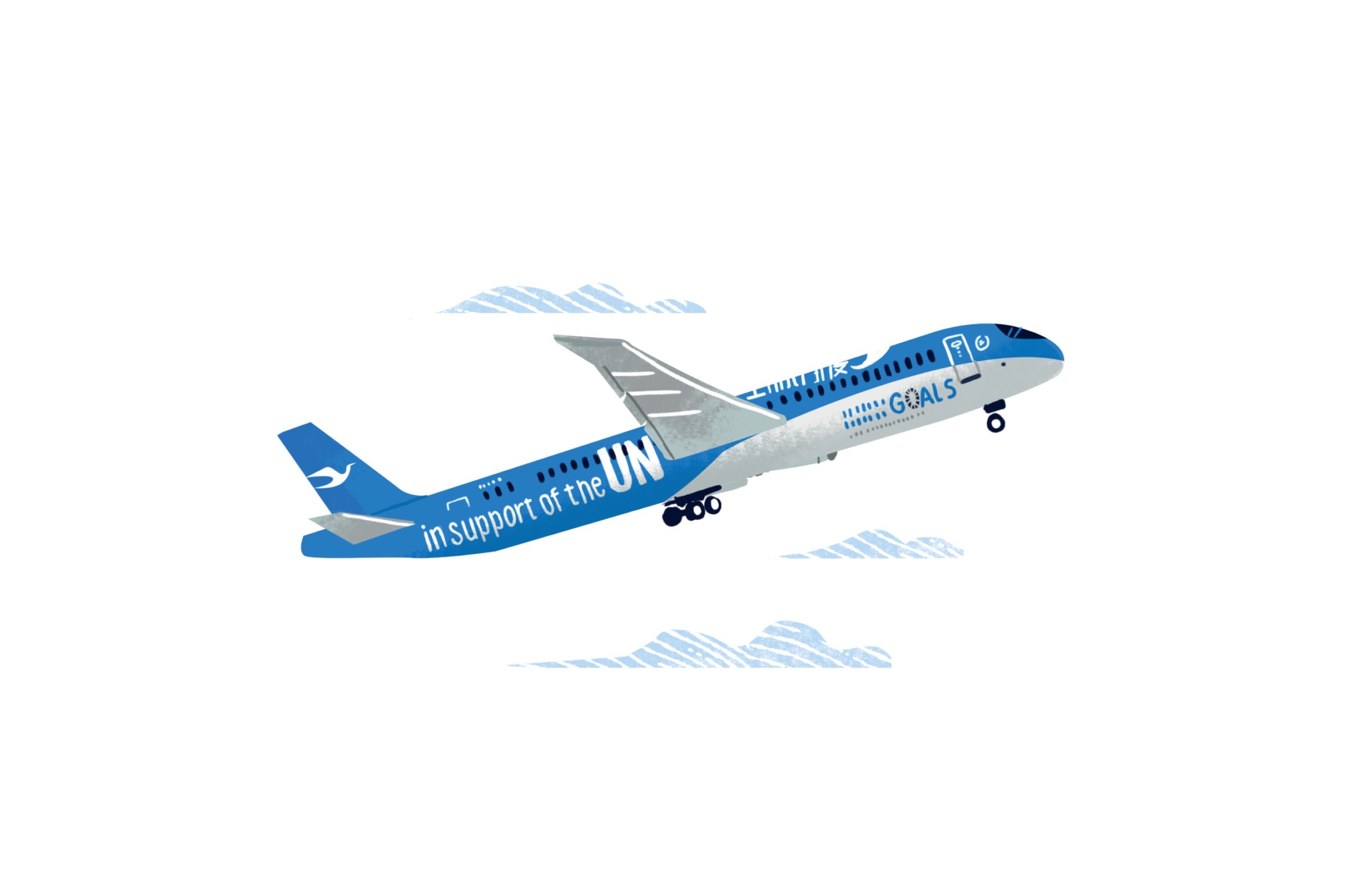After working in the civil aviation industry for three decades, Dong Zhao was appointed CEO and president of Xiamen Airlines in 2016. As of February 2019, he has served as the airline’s chairman – one more achievement to add to a long list that includes putting environmental conservation and sustainable development at the top of the airline’s agenda. As a member of the 2019-2020 APEX/IFSA Board of Governors, he has also helped identify sustainability as a key priority for the associations’ agendas.
FAST FACTS
Location: XMN
Years in the industry: 34
Favorite airport: PKX
Favorite aircraft: Boeing 787
Brand of suitcase: Rimowa
How have your past experiences served you in your current role?
I began by working on aeronautical information in the flight department of the Civil Aviation Administration of China in 1986. Three years later, in 1989, I came to Xiamen Airlines, and have been here ever since. Over the years, I’ve managed everything from marketing, network planning, revenue management, international business, to air cargo, cabin-ground services and even branding. Having witnessed Xiamen Airlines’ steady growth over the years, and being familiar with various areas of the business, serves me well as its chairman. I recently told my staff that if I could have breakfast, lunch and dinner at the company, I would. All I think about day and night is how to improve the company and better serve society, and that’s what I intend to keep doing moving forward.
What achievements during your tenure at the airline are you most proud of?
There are many. We’ve had outstanding operating results, ranking among the top 10 airlines in the world in terms of operating-profit ratio, and are the only airline in China that has been profitable for 33 consecutive years. We joined the SkyTeam airline alliance in 2012, have been rated by our passengers as the “Best Chinese Airline” in terms of service in mainland China for 30 consecutive quarters, and have been awarded the highest accolade in the field of quality in China, the China Quality Award. I am also very proud of the fact that Xiamen Airlines was the first airline in the world to support the United Nation’s Sustainable Development Goals (SDGs).
You’ve been on record saying you thought CORSIA falls short of fairness. Can you elaborate?
I think everyone with social responsibility in our industry would agree with the good intentions of CORSIA. We should all be proud that, as an industry, we have made very concrete efforts to reduce carbon emissions. However, I have different views about some of the specifics of the scheme that would charge airlines in terms of emission growth, discounting those left over by history. I think this might fall short of fairness, especially for newly globalized airlines, and I hope there is room for discussion and modification. As our actions and involvement with the UN SDGs show, Xiamen Airlines is vigorously exploring the path to sustainable development, and we are definitely willing to play an active role in reducing emissions from international aviation.
China’s aviation industry needs to crack the bottleneck of airspace resources and build a safe and efficient air traffic management system.
Has media attention on your sustainability initiatives impacted brand awareness?
Our actions have attracted widespread media attention. For instance, last May, our United Dream€¯ aircraft, the world’s only SDG specially painted aircraft, completed its first test flight at Beijing Daxing International Airport. The event was aired more than 20 times on several CCTV [China Central Television] programs and channels, including in a rolling broadcast on Xinwen Lianbo, one of the world’s most watched programs. Since welcoming the aircraft into our fleet, we’ve had four themed flights, garnering over 100 million impressions.
In addition to raising awareness for the SDGs and shaping consumer habits, our initiatives have elevated Xiamen Airlines’ profile and benefited the long-term development of the brand. I believe that as the concept of global sustainable development gains popularity, more and more consumers will consciously choose responsible enterprises, products and services, like our own.
What are your goals for the rest of the year?
The top short-term priority is to successfully transfer to Daxing International and build the prototype of Xiamen Airlines’ northern headquarters. In terms of transport capacity, we will put 17 planes in operation at the airport this year. By 2025, that number will exceed 50 and we will have built an air express line from Daxing International to airports in Fujian, Hangzhou, Shenzhen and more. We will also strive to build an air network from Daxing International to major domestic cities, such as Hong Kong, Macao and Taipei, and expand further throughout Asia. This is in addition to our goal of continuing to operate in a mode of resource conservation, environmental protection and sustainable development.
What challenges do you foresee in the growth of Chinese aviation?
Firstly, there are various uncertainties when it comes to the international situation and geopolitics, which not only affect the demand of air passenger and cargo markets but also cause fluctuations in oil prices and exchange rates. Secondly, China’s civil aviation needs to build a strong Chinese brand grounded in a global network of airlines and an international hub. It also needs to adapt to China’s regional economic development and build a world-class airport group featuring complementary advantages and mutual benefits. Finally, the shortage of airport capacity has affected the development of airlines and the overall operational efficiency of the industry. China’s aviation industry needs to crack the bottleneck of airspace resources and build a safe and efficient air traffic management system.
Opportunities and challenges are always interconnected, so faced with these obstacles, we are seeking ways to survive and thrive in an era of sweeping competition and brutal elimination.
How Xiamen Airlines is Meeting the UN SDGs
 |
Raising Awareness Xiamen is promoting the SDGs €¯with a branded United Dreams Boeing 787-9, which undertakes special themed flights. Furthermore, SDG-related videos are broadcast on board and in lounges, and SDG content is published in the in-flight magazine. |
 |
Using Renewable Materials Plastic is gradually being replaced on board, mostly with bamboo, which has thus far been used for tissues and cups. The airline is also salvaging seat covers, blankets and napkins that would have otherwise gone to waste, turning them into slippers, laptop cases, luggage covers and shopping bags. |
 |
Shopping Locally In an effort to build on its yearly contributions of about 10 million yuan ($1.5 million) to poverty-alleviation projects, Xiamen is purchasing mushrooms, potatoes and purple rice from farmers in the area to boost the local economy and its in-flight menu. |
 |
Encouraging Literacy On World Reading Day, Xiamen provided cards to passengers on which they could write words of encouragement to children living in the poverty-stricken area of Zhuozi County. “Some of the cards impressed me deeply,” Zhao says. “In one, a child wrote in Chinese, ‘Hi, my friend. I am a foreigner. My Chinese is poor, I am sorry,’ and then followed€¯in English with, ‘Study hard so€¯you can change the world when you€¯get bigger.'” The cards were collected and transported with books to Zhuozi, where the airline helped set up a reading room for two primary schools. |
 |
Competing for Change In December, the airline held the first Xiamen Airlines SDGs City Exploration Competition, a six-hour race designed to help participants understand the SDGs. “In the future, we intend to turn the competition into a serial event that reaches more Chinese and even international cities,” Zhao says. |
This article was originally published in the 10.2 April/May issue of APEX Experience magazine.


